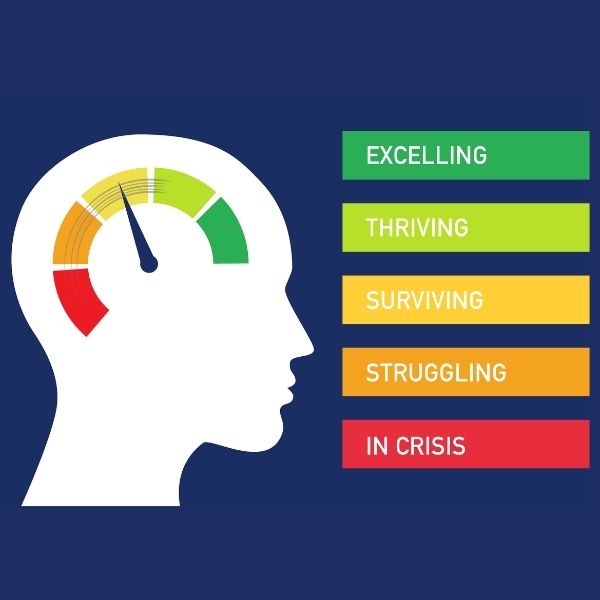Individual Counselling
“The most basic and powerful way to connect to another person is to listen. Just listen. Perhaps the most important thing we ever give each other is our attention…A loving silence often has far more power to heal and to connect than the most well-intentioned words.” – Rachel Naomi Remen
Despite the fact that modern day living is strewn with a range of amenities that make our life easier, and the ever-evolving influx of technology has made the world smaller through better connectivity and endless source of information, the impact of contemporary ways of living has given rise to a number of psychological and mental health concerns.
At SCS, we focus on understanding the need to address the social, professional, psychological triggers of modern life that influence the emotional and mental wellbeing of an individual. We offer curated services through sessions based on the specific needs of our clients while assisting them to deal with their issues concerning their emotional and mental wellbeing.

In our fast-paced economic-driven world, individuals feel the pressure to maintain a certain way of life that has led to various mental health issues, be it in pursuit of professional and financial prospects, to maintain social standing, personal relationships with family and friends, students under pressure for academic achievement, excessive exposure to media and technology or an unhealthy lifestyle. All of these are detrimental to mental health which lead to issues like stress, hypertension, depression and anxiety.
What is Individual Counselling?
Individual Counselling is a process that involves a qualified counsellor assisting the client through one-on-one meeting sessions in a safe and caring setting to explore and address personal feelings, beliefs, or behaviours which will help them better understand themselves and others.
Through individual counselling, clients will identify and set personal goals and work towards aspects of their lives they would like to change.
Counselling in general is a talking therapy which basically encourages honest, open non-judgemental conversations through which the client often finds a different perspective or is able to find new answers and reconnect with themselves more fully.
Individual Counselling is an umbrella term to define possible terminology and is inclusive of methods such as psychotherapy, Personal Counselling, one on one counselling, etc.
Understanding mental health Crises
Unstable mental and emotional state can lead to issues which can cause distress and interfere with one’s daily life. The feeling of distress and hopelessness can be overwhelming enough to cause negative thoughts, feelings, behaviours, and even bodily sensation such as pain or fatigue. It can also make one lose focus at work and school, experience addiction and can further lead to destructive habits to self and even others.
According to a recent study done by WHO, India ranks 1st among the most depressed countries of the world. Currently in India, nearly 6.5% of people suffer from some form of serious mental disorder. It also stated that in India people largely suffer from anxiety, schizophrenia and bipolar disorder.

The root causes for these emotional and mental setbacks can be traced in a number of reasons as listed below:
- Childhood abuse, trauma, or neglect
- Social isolation or discrimination resulting to loneliness
- Experiencing discrimination and stigma
- Social disadvantage, poverty or debt
- Bereavement
- Severe long-term stress
- Having a long-term physical health condition
- Unemployment or losing your job
- Genetics, possibility of a certain underlying mental illness that runs in the family
- Environment causes such as pollution
- Insomnia (not getting enough sleep), not following a healthy diet, or consumption of unhealthy food
- Drugs and alcohol abuse can trigger a mental illness or exacerbate existing ones
Studies have shown a direct and bilateral relationship between one’s lifestyle and mental health. Other possible factors include, lack of prioritising, meaning the inability to balance professional and personal commitments, poor or infrequent stress release mechanisms like resorting to bad habits (consumption of alcohol, stress eating rich fatty food) or infrequent practices (irregular workouts) as temporary means to cope with stress. It has become increasingly important for a proper intervention by a trained therapist to address these issues before the symptoms become severe.
According to the data provided at WHO website, it is estimated that the burden of mental health problems in India is 2443 disability-adjusted life years (DALYs) per 100,00 population; the age-adjusted suicide rate per 100,000 population is 21.1. The economic loss due to mental health conditions between 2012 and 2030, is estimated at USD 1.03 trillion.
Individual Counselling by a trained therapist can help provide directives to people to make positive lifestyle changes. They help to identify underlying causes of symptoms and provide strategies to alter unwanted thoughts and behaviours. Therapy interventions can help to better equip people with the skills to manage symptoms, reduce stress, and improve their quality of life.
Individual Counselling at SCS
Our core objective is to provide conducive space for discussions between a trained therapist and client in a confidential setting to encourage honest and open interaction to identify mental, emotional, physical, and behavioural issues and offer directives through integrated session customised to address the clientele’s specific concerns that may be discussed in therapy include, but are not limited to:
- Anxiety and Stress
- Issues related to food habits
- Anger, Anxiety
- Relationships-related and marital issues
- Addiction to substances, alcohol
- History of Abuse
- Family issues relating to discord within close members of family or among relatives
- Insomnia
- Sexuality and gender identity

At SCS, Individual counselling begins with a one-hour assessment session where the focus is on establishing a clear understanding of the counselling process. Data gathering and understanding the client’s background, past experiences and discussing the particular concerns which are immediate triggers that the client wishes to share.
Once there is clarity on what needs to be addressed and a rapport is built between the mental health professional and client, discussions are done to address the concerns and the next course of action to deal with them.
Our team of experts use multifaceted approach to assist a client’s specific needs and often combine ideas from various therapy methods and techniques such as:
- Cognitive behavioral therapy, an approach to help the client to observe the connection between thoughts, emotions, and behaviors and help to replace negative thinking patterns with positive ones often resulting in productive actions
- Dialectical behavior therapy helps people to cope with stress, improve emotional regulation, and work on relationships.
- Interpersonal psychotherapy to help build relationship skills
- Acceptance and commitment therapy increase awareness of thoughts, emotions and courses of action.
- Psychodynamic therapy can help the client to understand unconscious experiences and the resulting effect on their behavior.
At SCS, we encourage our clients in having unashamed and unapologetic honest conversations which is devoid of any bias and stigma, for healing begins with sharing of one’s story, experiences, and feelings that are valuable throughout recovery and are especially helpful during therapy.
Determination to be active in therapy is essential for meeting therapeutic goals and fostering a positive relationship between a mental health care professional and the person seeking therapy. Individual therapy can help people overcome obstacles on their journey to well-being. It can increase positive feelings, such as compassion and self-esteem.
Therapy can help people learn skills for handling difficult situations and making healthy decisions. Many have discovered the therapeutic journey to become more self-aware.
Milton H Erickson – “Each person is a unique individual. Hence, psychotherapy should be formulated to meet the uniqueness of the individual’s needs, rather than tailoring the person to fit the Procrustean bed of hypothetical theory of human behaviour.”
